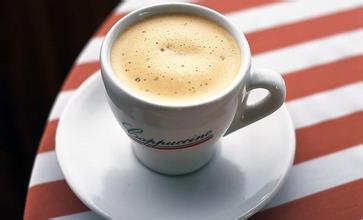Yemeni coffee features Yemeni coffee flavor mocha coffee Yemen mocha coffee Yemen mocha coffee beans
Coffee has been Yemen's traditional export product for hundreds of years, and it is still one of the most important cash crops and export products in Yemen. Statistics show that among the top 30 commodities exported by Yemen in 2000, cooked coffee beans, raw coffee beans and coffee shells ranked second, eighth and 21st respectively, with a total value of about US $17.5 million, of which raw coffee was about US $12.25 million. The planting area of coffee was 2. 5% of that in 1995. The number of hectares increased from 70,000 hectares to 3,000 hectares in 2000. The output increased from about 9000 tons in 1995 to about 1 in 2000. 20,000 tons, with an average of 0 per hectare of real estate coffee. The output value of coffee in 2000 was 3 billion rials, or about 19 million U.S. dollars.
Yemeni coffee originated from Arabian coffee trees hundreds of years ago, all of which are produced in areas above 3000 feet above sea level. For hundreds of years, the unique planting and production methods of Yemeni coffee have remained almost unchanged. The seedlings of coffee trees are first cultivated in nurseries and then transplanted to high elevations. No pesticides and chemical fertilizers are used in the breeding process. Mature coffee beans are naturally air-dried on coffee trees. After being shelled by stone mill and then washed repeatedly by manual selection, the coffee beans obtained are regular in shape, uniform in size, and the color can range from light green to yellowish brown. The fragrance is rich and long-lasting. The high-quality coffee is meaningful and meaningful, refreshing and refreshing, giving people endless aftertaste.
Moha is a small seaport on the red sea in the south of Yemen. for hundreds of years, most of the famous Yemeni coffee is exported to all countries of the world, so Yemeni coffee is gradually named after Moha. For many years, Yemeni Moha coffee has been regarded as the best coffee in the world, and its excellent quality has always been praised by the world. Moha coffee was first exported to Europe and then became popular in neighboring countries. Saudi Arabia is said to like Moha coffee in Yemen in particular, and the Saudis are willing to pay a high price even if they know it is of slightly lower quality. Today, almost all Arab regions and even India export coffee in the name of Moha. In fact, Yemen is the real origin of the world-famous Moha coffee.
There are many varieties of Yemeni coffee, most of which are named after their origin and type, with different flavors, such as fresh wood, tobacco, musk, fruit wine, roasted nuts, cocoa and warm seasonings, especially Moha coffee. At present, Yemeni Moha coffee is the most famous Yemeni Moha coffee on the market, such as Isemary, Matari, Sanani and so on. Sanani coffee has medium bean size and fruit wine flavor. Produced in Sana'an and surrounding areas Matari coffee originates from and around Mattar in the west of Sana 'a. it is the best-known moha coffee with unique flavor. Coffee beans have chocolate color, complete grain shape, fruit wine and seasoning flavor. Isimarie coffee is the rarest variety of Moha coffee, produced in the highest altitude of Yemen, the output is very limited, the price is expensive, but there are fruit wine, spices, nuts, malt and other flavors, the quality is higher than the Matari and Sanani coffee, is the best coffee in the world. In addition, Xilazi and Zamarni are also famous coffee brands, which are produced in the high mountains along the Sana'a-Hodeida highway and in the Zamar region.
Yemeni Moha coffee beans are small and heavy, which is an important feature that distinguishes coffee from Caribbean and Ethiopian coffee.
In recent years, due to the deterioration of natural conditions and man-made reasons, such as water shortage and the occupation of resources planted by Carter, the development of Yemeni coffee industry is relatively slow. How to further consolidate and develop the coffee planting industry and reshape the glory of Yemeni coffee in history is an important issue for the development of Yemeni agriculture.

Important Notice :
前街咖啡 FrontStreet Coffee has moved to new addredd:
FrontStreet Coffee Address: 315,Donghua East Road,GuangZhou
Tel:020 38364473
- Prev

An introduction to the taste and flavor of Uganda boutique coffee bean manor.
In the 1870s, British colonists attempted to annex all parts of Uganda, which was thwarted by the Kingdom of Buniolo. At the end of the 1970s, the Anglo-French Christian Church went to the Kingdom of Buganda to preach. They interfered in politics and caused sectarian strife. After years of war, the kingdom of Buganda declined rapidly. In 1890, British troops invaded Buganda. Frederick Frederick Lugard, agent of the Royal British East Africa Company.
- Next

Introduction of Puerto Rican Coffee Flavor Manor with Pure, aromatic and heavy granule
On 6 November 2012, Puerto Rico held its fourth referendum. The referendum consists of two rounds of voting. In the first round, Puerto Ricans voted on whether they wanted to change the status quo in their relations with the United States. 1.8 million people were eligible to vote, 65000 gave up the first round of voting, and 54 per cent of those who took part in the vote supported a change of relationship. Later, Puerto Ricans were like
Related
- Detailed explanation of Jadeite planting Land in Panamanian Jadeite Manor introduction to the grading system of Jadeite competitive bidding, Red bid, Green bid and Rose Summer
- Story of Coffee planting in Brenka region of Costa Rica Stonehenge Manor anaerobic heavy honey treatment of flavor mouth
- What's on the barrel of Blue Mountain Coffee beans?
- Can American coffee also pull flowers? How to use hot American style to pull out a good-looking pattern?
- Can you make a cold extract with coffee beans? What is the right proportion for cold-extracted coffee formula?
- Indonesian PWN Gold Mandrine Coffee Origin Features Flavor How to Chong? Mandolin coffee is American.
- A brief introduction to the flavor characteristics of Brazilian yellow bourbon coffee beans
- What is the effect of different water quality on the flavor of cold-extracted coffee? What kind of water is best for brewing coffee?
- Why do you think of Rose Summer whenever you mention Panamanian coffee?
- Introduction to the characteristics of authentic blue mountain coffee bean producing areas? What is the CIB Coffee Authority in Jamaica?

